
We love getting out in the great outdoors – there are so many places to explore like local parks, forests and beaches. We have put together 10 reasons the outdoors make us happy.
Here is why being outdoors is great for both you and your family.
1. It improves our mood
Being in nature reduces stress-related hormones and makes us happier and calmer. A morning walk (if you have time) or an evening stroll is always a great idea. Spending just 20 minutes outside every day will improve your wellbeing and make you feel more relaxed.
2. It improves focus
Taking a break and heading outdoors helps us restore our focus and makes us more productive. If you or your children are having a hard time focusing, going for a walk together will surely make you feel better and more productive.
3. It helps us exercise
A simple walk is a great exercise and you don’t need any equipment to enjoy it. Encouraging children to walk from the earliest age promotes healthy growth and also introduces them to the enjoyment of regular physical exercise.
4. It boosts our energy
Being outside is a great way to boost those energy levels. Running around in the open air will make the most sluggish days feel better but don’t worry, this effect will magically disappear by bedtime!
5. It keeps us away from the screen
We are all guilty, almost whatever the age, of spending too much time on our phones, aren’t we? Being outside is a great alternative to screen time. Plan a family outdoor adventure or simply go for a longer walk if you can.
6. It brings us closer together
Spending time outside together is a great way to bond as a family. Research suggests that families who spend more time outdoors together are happier and have better relationships.
7. New experiences
New smells, sounds and views always make children happy and can keep them inspired. Being outside helps build independence, freedom and their sense of discovery as they take leaps and test their abilities while learning about nature and its inhabitants.
8. It is healthy
Being outside is not only a great way to spend a day, but it is also healthy and essential to our wellbeing and happiness. Being active lowers the risk of obesity and other lifestyle diseases and boosts our immune system.
9. It boosts vitamin D
Vitamin D is important for our bones and immune system, especially during childhood and we get most of it from sunlight exposure from around late March or early April to the end of September. This is why being outside is not only enjoyable but also really important for our health. During the long winter months, sunlight doesn’t contain enough UVB radiation for our skin to be able to make vitamin D so it’s even more important to eat a varied diet to ensure we get vitamin D from food sources.
10. It improves our sleep
Spending more time outside and being active in nature can improve the quality of our sleep. When children are outdoors, they tend to move more and vigorous exercise helps them get a better night’s sleep. Natural light also helps reset our body clock and makes us feel more refreshed and rested in the morning, another great reason to take a morning walk with your little explorers.
For further information please visit www.muddypuddles.com

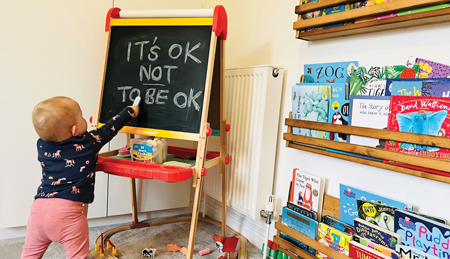
 Mining for diamonds
Mining for diamonds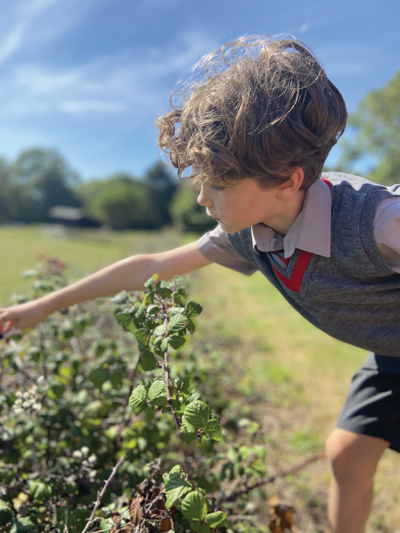
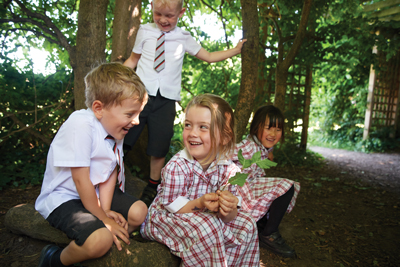

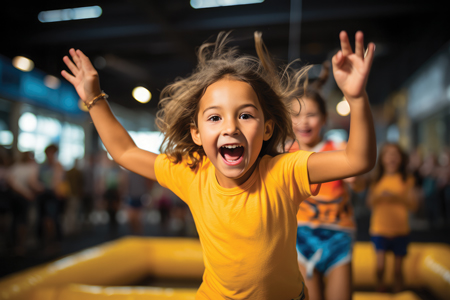

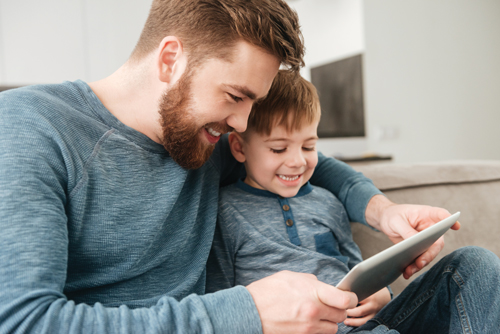
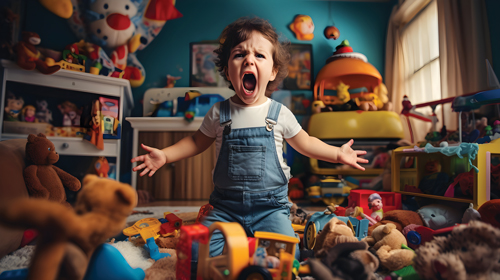
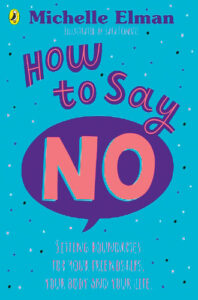 isten when their siblings say no to them entering their room. Emphasising that we also want to respect other people’s boundaries and giving them the language around boundaries is also really helpful. A boundary might not always sound like the word “no”, it can be “That doesn’t work for me”, or “I don’t like the sound of that,” and when you understand that this is someone conveying their boundaries, not only do they have phrases to listen out for but they have the same phrases they can use themselves.
isten when their siblings say no to them entering their room. Emphasising that we also want to respect other people’s boundaries and giving them the language around boundaries is also really helpful. A boundary might not always sound like the word “no”, it can be “That doesn’t work for me”, or “I don’t like the sound of that,” and when you understand that this is someone conveying their boundaries, not only do they have phrases to listen out for but they have the same phrases they can use themselves.










